Benji Jones in Vox:
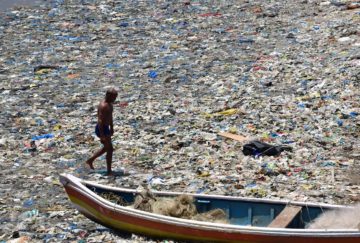 Plastic recycling doesn’t work, no matter how diligently you wash out your peanut butter container. Only about 15 percent of plastic waste is collected for recycling worldwide, and of that, about half ends up discarded. That means just 9 percent of plastic waste is recycled.
Plastic recycling doesn’t work, no matter how diligently you wash out your peanut butter container. Only about 15 percent of plastic waste is collected for recycling worldwide, and of that, about half ends up discarded. That means just 9 percent of plastic waste is recycled.
The rest — some 91 percent of all plastic waste — ends up in landfills, incinerators, or as trash in the environment. One report estimated that 11 million metric tons of plastic trash leaked into the ocean in 2016, and that number could triple by 2040 as the global population rises and lower-income countries develop. Plastic is now simply everywhere: at the deepest depths of the ocean, on the tallest mountains, in hundreds of species of wildlife, and even in human placentas. It’s hard to imagine meaningful solutions to a problem of such epic proportions. Campaigns to ban things like plastic straws almost seem like a joke when compared to the staggering amounts of waste produced by everything else we use — including the plastic cups those straws go in.
Now, however, there might actually be a reason to feel hopeful. Late last year, world leaders, scientists, and advocates started working on a global, legally binding treaty under the United Nations to end plastic waste. The second round of negotiations concluded last week in Paris with a plan to produce an initial draft of the deal.
More here.

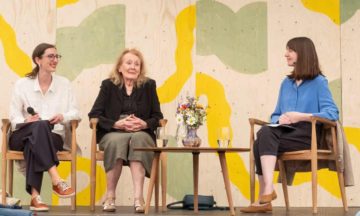 In conversation with the novelist
In conversation with the novelist 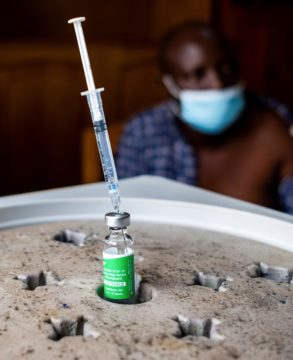 The people of Rwanda have been tested by tragedy. Nearly thirty years ago, when ethnic Hutu extremists sought to exterminate the country’s Tutsi minority,
The people of Rwanda have been tested by tragedy. Nearly thirty years ago, when ethnic Hutu extremists sought to exterminate the country’s Tutsi minority, 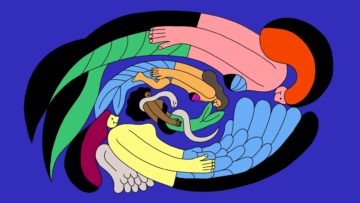 In 1989, a redheaded mermaid made her big-screen debut. She wanted to be part of the above-surface world, where people walk around on (what do you call ‘em?) feet, to wander free on the sand in the sunshine. She fell in love with a handsome, kind prince. After some terrifying obstacles and a near-miss, they married. Ariel got her feet. For Disney, The Little Mermaid was a big hit, the start of a new era for the studio’s animated entertainment. She launched a hot streak that would continue through the 1990s: Beauty and the Beast (1991), Aladdin (1992), The Lion King (1994), Pocahontas (1995), The Hunchback of Notre Dame (1996), Hercules (1997), Mulan (1998), and Tarzan (1999). They were hits then, the early films in particular, and form a foundational plank in billions of lives. A tremendous percentage of people walking around on the planet can sing snatches of “Part of Your World” or “A Whole New World” or “Circle of Life” at the drop of a hat.
In 1989, a redheaded mermaid made her big-screen debut. She wanted to be part of the above-surface world, where people walk around on (what do you call ‘em?) feet, to wander free on the sand in the sunshine. She fell in love with a handsome, kind prince. After some terrifying obstacles and a near-miss, they married. Ariel got her feet. For Disney, The Little Mermaid was a big hit, the start of a new era for the studio’s animated entertainment. She launched a hot streak that would continue through the 1990s: Beauty and the Beast (1991), Aladdin (1992), The Lion King (1994), Pocahontas (1995), The Hunchback of Notre Dame (1996), Hercules (1997), Mulan (1998), and Tarzan (1999). They were hits then, the early films in particular, and form a foundational plank in billions of lives. A tremendous percentage of people walking around on the planet can sing snatches of “Part of Your World” or “A Whole New World” or “Circle of Life” at the drop of a hat. Scientists might be able to keep tabs on the world’s flora and fauna by analysing DNA floating through the air. That’s the conclusion of a study published on 5 June in Current Biology
Scientists might be able to keep tabs on the world’s flora and fauna by analysing DNA floating through the air. That’s the conclusion of a study published on 5 June in Current Biology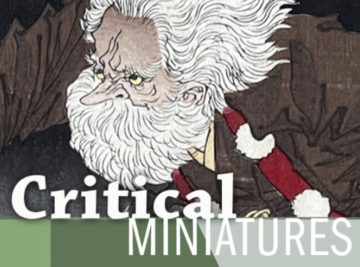 What exactly separates the short story from the novel? As the contemporary Scottish writer William Boyd has observed, the issue is more complicated than it might at first appear. Novelists and short story writers, Boyd points out, rely on the same “literary tools,” including character, plot, setting, title, and dialogue, and their outputs—sentences and paragraphs—look the same on the page. The tempting answer is to fall back on the obvious difference: short stories are just shorter than novels.
What exactly separates the short story from the novel? As the contemporary Scottish writer William Boyd has observed, the issue is more complicated than it might at first appear. Novelists and short story writers, Boyd points out, rely on the same “literary tools,” including character, plot, setting, title, and dialogue, and their outputs—sentences and paragraphs—look the same on the page. The tempting answer is to fall back on the obvious difference: short stories are just shorter than novels.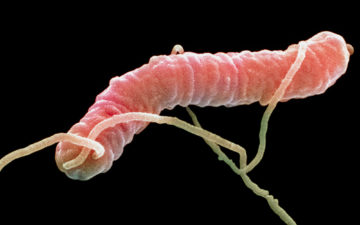 In the 1870s, German physician Robert Koch was trying to curtail an epidemic of anthrax that was sweeping local farm animals. Other scientists had seen a bacterium, Bacillus anthracis, in the victims’ tissues. Koch injected this microbe into a mouse – which died. He recovered it from the dead rodent and injected it into another one – which also died. Doggedly, he repeated this grim process for over 20 generations and the same thing happened every time. Koch had unequivocally shown that Bacillus anthracis caused anthrax.
In the 1870s, German physician Robert Koch was trying to curtail an epidemic of anthrax that was sweeping local farm animals. Other scientists had seen a bacterium, Bacillus anthracis, in the victims’ tissues. Koch injected this microbe into a mouse – which died. He recovered it from the dead rodent and injected it into another one – which also died. Doggedly, he repeated this grim process for over 20 generations and the same thing happened every time. Koch had unequivocally shown that Bacillus anthracis caused anthrax.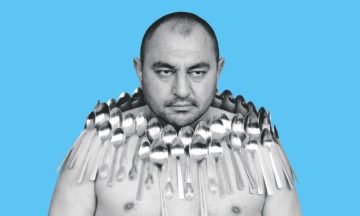 It is strange to think of Guinness World Records – a business named after a beer company, which catalogues humanity’s most batshit endeavours – as the kind of entity that could sell out. At first glance, it seems like accusing Alton Towers or Pizza Express of selling out. But the deeper I delved into the world of record breaking, the more sense it made. In spite of its absurdity, or maybe because of it, record breaking is a reflection of our deepest interests and desires. Look deeply enough at a man attempting to break the record for most spoons on a human body, or the woman seeking to become the oldest salsa dancer in the world, and you can find yourself starting to believe that you’re peering into humanity’s soul.
It is strange to think of Guinness World Records – a business named after a beer company, which catalogues humanity’s most batshit endeavours – as the kind of entity that could sell out. At first glance, it seems like accusing Alton Towers or Pizza Express of selling out. But the deeper I delved into the world of record breaking, the more sense it made. In spite of its absurdity, or maybe because of it, record breaking is a reflection of our deepest interests and desires. Look deeply enough at a man attempting to break the record for most spoons on a human body, or the woman seeking to become the oldest salsa dancer in the world, and you can find yourself starting to believe that you’re peering into humanity’s soul.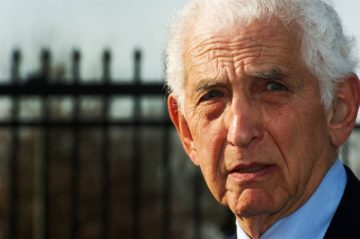 Ellsberg, snowy-haired but energetic despite the cancer — renowned for his eloquence, he still speaks in perfect paragraphs — was calm, even jovial, during what his son, Robert Ellsberg, said would be his last interview. Based on his experience in the covert world, Ellsberg sees a direct line between the deceptions and lies that led to the Vietnam War — and 58,000 American deaths — and the deceptions and lies that justified the Iraq war. This high-level deceit, Ellsberg says, extends to America’s current drone war policy around the world, in which the government has
Ellsberg, snowy-haired but energetic despite the cancer — renowned for his eloquence, he still speaks in perfect paragraphs — was calm, even jovial, during what his son, Robert Ellsberg, said would be his last interview. Based on his experience in the covert world, Ellsberg sees a direct line between the deceptions and lies that led to the Vietnam War — and 58,000 American deaths — and the deceptions and lies that justified the Iraq war. This high-level deceit, Ellsberg says, extends to America’s current drone war policy around the world, in which the government has 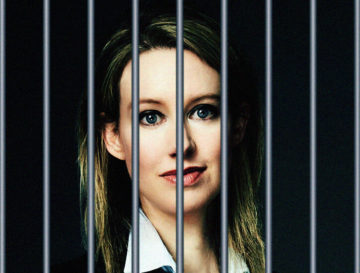 Sarah Arkebauer in The Baffler:
Sarah Arkebauer in The Baffler: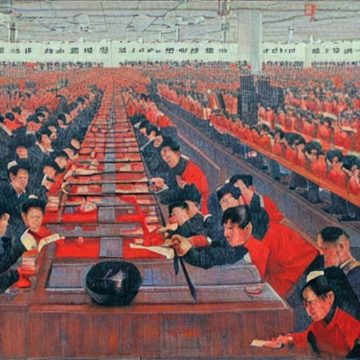 Cedric Durand in Sidecar:
Cedric Durand in Sidecar: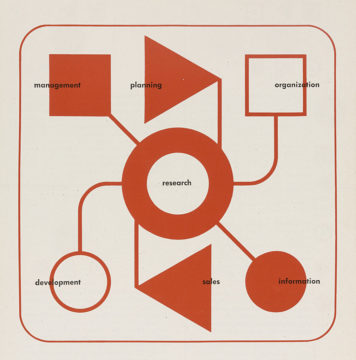 Isabel Estevez in Phenomenal World:
Isabel Estevez in Phenomenal World: What exactly separates the short story from the novel? As the contemporary Scottish writer William Boyd has observed, the issue is more complicated than it might at first appear. Novelists and short story writers, Boyd points out, rely on the same “literary tools,” including character, plot, setting, title, and dialogue, and their outputs—sentences and paragraphs—look the same on the page. The tempting answer is to fall back on the obvious difference: short stories are just shorter than novels.
What exactly separates the short story from the novel? As the contemporary Scottish writer William Boyd has observed, the issue is more complicated than it might at first appear. Novelists and short story writers, Boyd points out, rely on the same “literary tools,” including character, plot, setting, title, and dialogue, and their outputs—sentences and paragraphs—look the same on the page. The tempting answer is to fall back on the obvious difference: short stories are just shorter than novels.